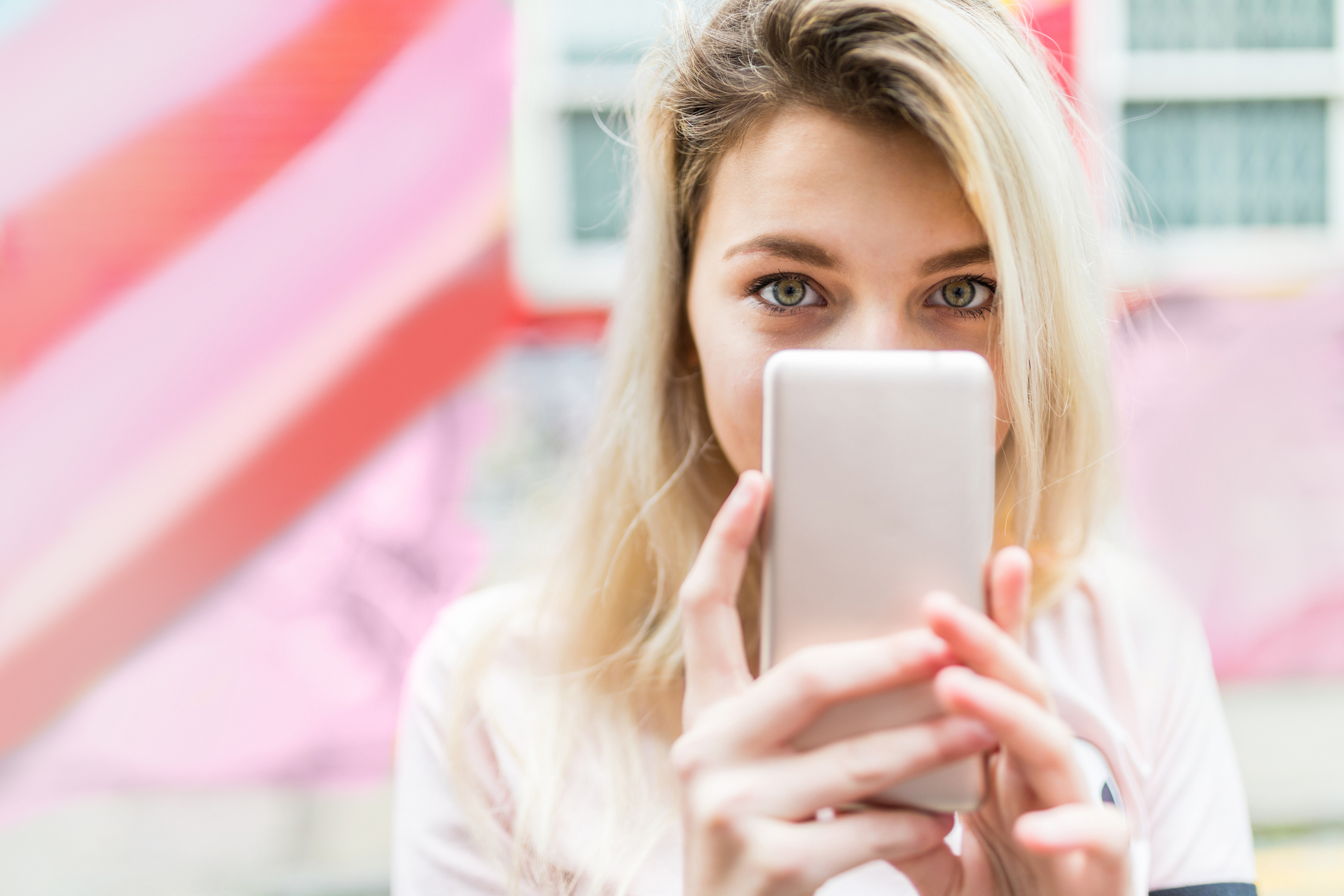When is the last time you took the elevator, rode the subway, or waited in line at the grocery store without getting sucked into Instagram? My answer to this question is bleak.
Instagram hit 1 billion monthly users in the summer of 2018, and has been experiencing faster growth than the oh-so-popular Facebook and Snapchat platforms. What’s behind our collective desire to incessantly check this simple, yet tantalizing photo-sharing app? Here’s what the research says.
Is Instagram Actually Addictive?
Smartphone addiction has been widely studied, and a 2014 meta-analysis on internet addiction suggests that 6% of individuals globally feel a need to stay constantly connected. Apps like Instagram are what keep us tethered to our devices.
When used excessively, social media users appear to develop symptoms similar to substance-abuse addictions, such as “salience, mood modification, tolerance, withdrawal, relapse, and conflict with regards to behavioral addictions.”
Excessive social media use has been shown to negatively impact people’s lives by lowering conscientiousness, increasing narcissism, decreasing real-life community engagement, and causing strain in relationships.
Some researchers argue that people are not addicted to the technology itself but rather the good feelings people get from “likes” and validating comments.
“By definition, social media sites are designed to be addictive,” Rachel O’Neill, Ph.D. LPCC-S, and Ohio-based Talkspace therapist said. “The very nature of scrolling impacts our mental health. It’s hard for anything to compete with the constant high that comes from checking for new posts, getting new likes, or being retweeted. Virtually every aspect of social media is designed to activate the pleasure centers of the brain.”
Social Media’s Slippery Slope
Addictions are sneaky because they often start out as simple enjoyments, offering momentary relief from uncomfortable feelings such as stress, sadness, or pain. In the case of social media, what starts out as a fun pastime quickly turns into a compulsive need to stay connected 24/7. For some, it’s used to prove to the world that they too are living their best life.
“Social media reinforces impulsivity, difficulty with self-regulation (a feature of any behavioral dependency), sensation-seeking, and the drive to seek novelty,” Dr. O’Neill explained. “The more an individual uses social media, the more they tend to detach from everyday life and this detachment might lead to more social media use. Over time, this cycle can lead an individual to rely exclusively on social media as their only form of interaction with others.”
When You Know It’s Time For A Digital Detox
There are times when I find myself more vulnerable to “comparison-itis,” like when I’m stressed about my future, feeling insecure in my body, or making a difficult decision. In these moments, I pay particular attention to the amount of time I spend on Instagram and remind myself that everyone’s seemingly picture-perfect life may be an illusion.
Sometimes, I’ll feel the urge to step away from Instagram altogether for a few days or a few months at a time. These digital detoxes help me to re-center, hear my own voice, and nurture my relationships IRL.
“For those individuals who begin to notice a connection between their mood and their social media use, I like to suggest a social media pause” Dr. O’Neill advised. “It doesn’t have to be a full detox, but rather, the introduction of some moderation management.”
Red Flags You Might Have A Social Media Addiction
According to Dr. O’Neill, there are several red flags to be aware of if you, or a loved one, is concerned about a social media addiction, including:
- Increasing amounts of time spent on social media sites
- Preoccupation with being online
- Experiencing withdrawal symptoms when not online
- Losing track of time and spending hours online
- Feeling annoyance if bothered while online
- Using social media to escape feelings
- Ignoring important work or life tasks in favor of being on social media
- Engaging in social media while at school or work despite experiencing negative consequences for using these sites
How To Overcome A Social Media Addiction
Dr. O’Neill suggests treating a social media addiction like pathological gambling. Finding a therapistwho utilizes cognitive-behavioral interventions such as dealing with urges, limiting access to social media, and problem solving/emotion management can be especially helpful.
“Treatment tends to focus on two main goals,” Dr. O’Neill said. “Focus on the attainment of controlled internet use, and the reduction of psychosocial problems directly and indirectly related to the internet dependence.”
She indicated treatment involves 3-4 weeks of abstinence from social networking sites like Instagram prior to beginning controlled internet use. Ongoing treatment likely involves some element of relapse prevention (e.g. identify high risk situations such as boredom at work or stressful family gatherings).
Whether or not you feel you are addicted to Instagram, the experts all seem to agree it’s beneficial to set some parameters for yourself about when you check Instagram. Pay attention to how often you scroll and the motivation behind doing so.
And if you are brave enough, try doing a digital detox. You might even surprise yourself with how good it feels.
Originally published on Talkspace.
More from Talkspace:
6 Ways to Deal With People Who Are Distant
Why Rejection Hurts (and 3 Ways to Dust Yourself Off)
Follow us here and subscribe here for all the latest news on how you can keep Thriving.
Stay up to date or catch-up on all our podcasts with Arianna Huffington here.


